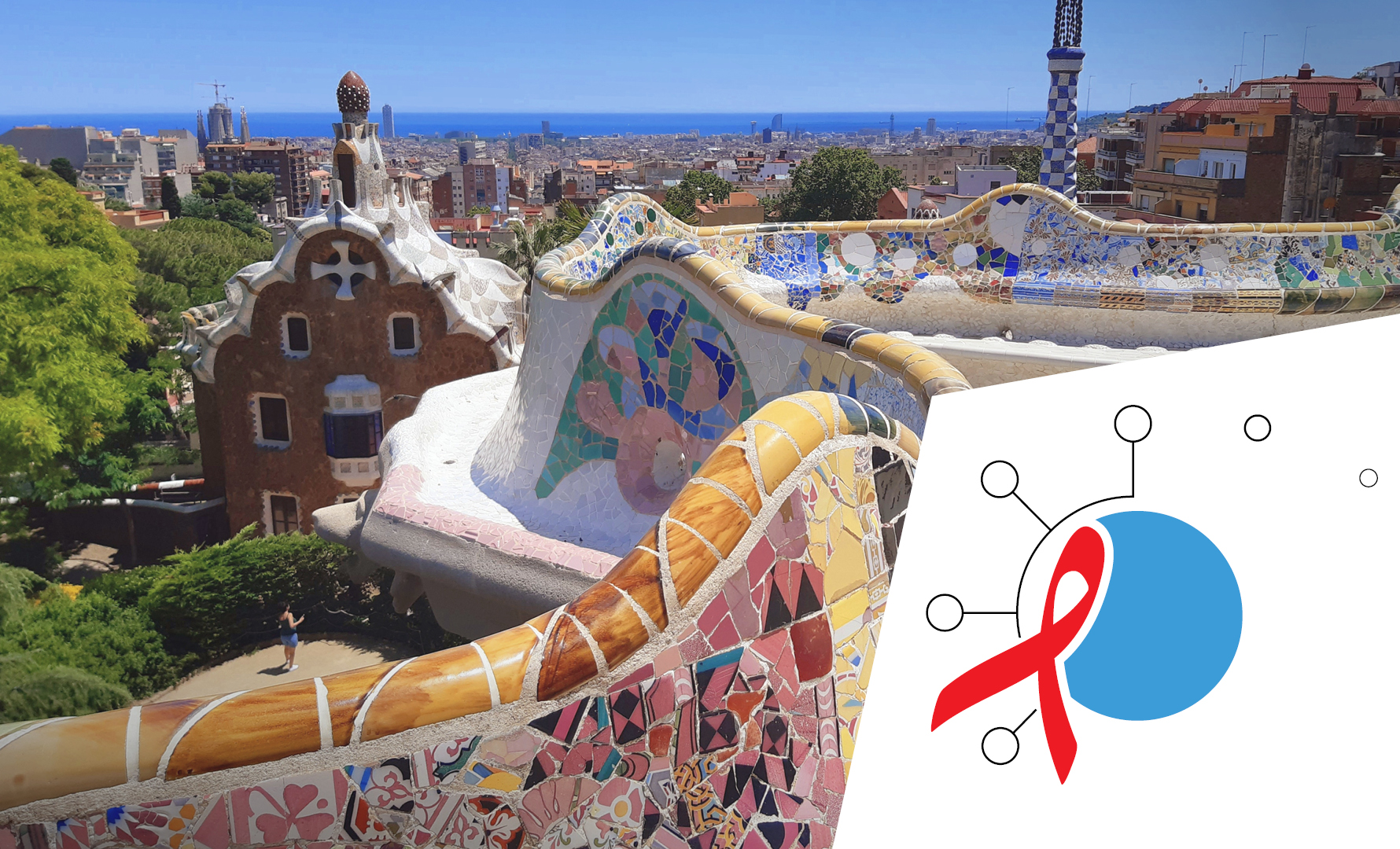
Woippy (France) – ABL Diagnostics (FR001400AHX6 – ABLD, the “Company”), a Euronext-listed company that develops molecular biology assays and software for microbiology laboratories is participating to the European Meeting on HIV & Hepatitis (AME) 2024 held in Barcelona.
ABL Diagnostics, alone and with partners, will showcase several disruptive scientific communications about the use of its products, how the NGS technology can enhance microbiology genotyping applications and increase efficiency of laboratories performing NGS:
- Advantageous Multiplex-NGS Approach for Identifying Whole Genome Respiratory Viruses (ABL Diagnostics & CH Toulon France)
- Simultaneous Multiplex Whole Genome Sequencing of HIV-1 and Influenza A/B viruses Using Nanopore Technology (ABL Diagnostics)
- Whole genome sequencing of Hepatitis Delta Virus (HDV) using next-generation sequencing: A new tool to detect nucleotide variations and phylogenotyping (ABL Diagnostics)
- Pooling of microbiological samples to optimize testing: comparative analysis of three NGS platforms (ABL Diagnostics)
- MGI Sequencing to Identify HIV-1 Drug Resistance Mutations (ABL Diagnostics & Latvia MGI Tech SIA)
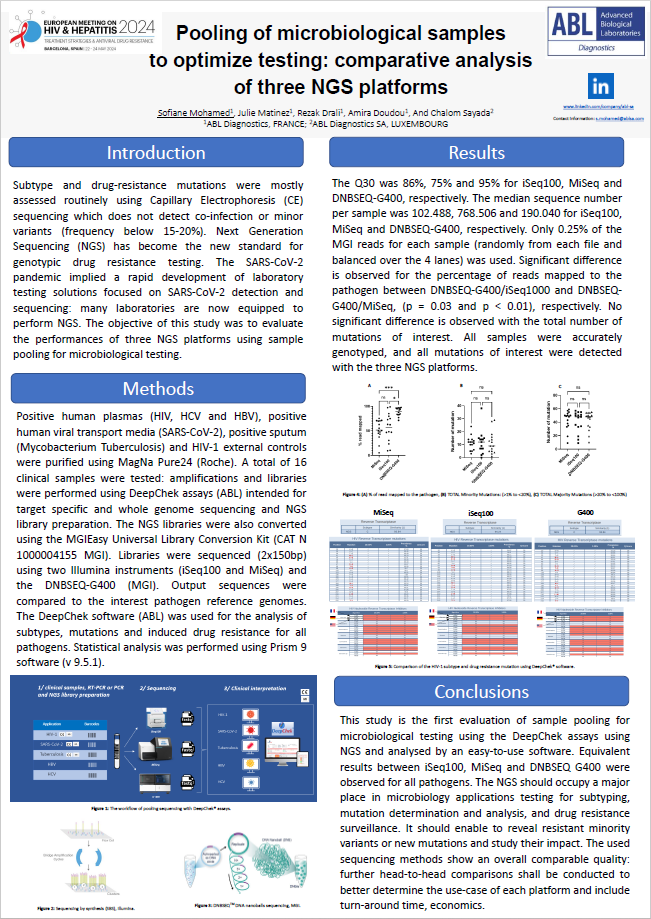
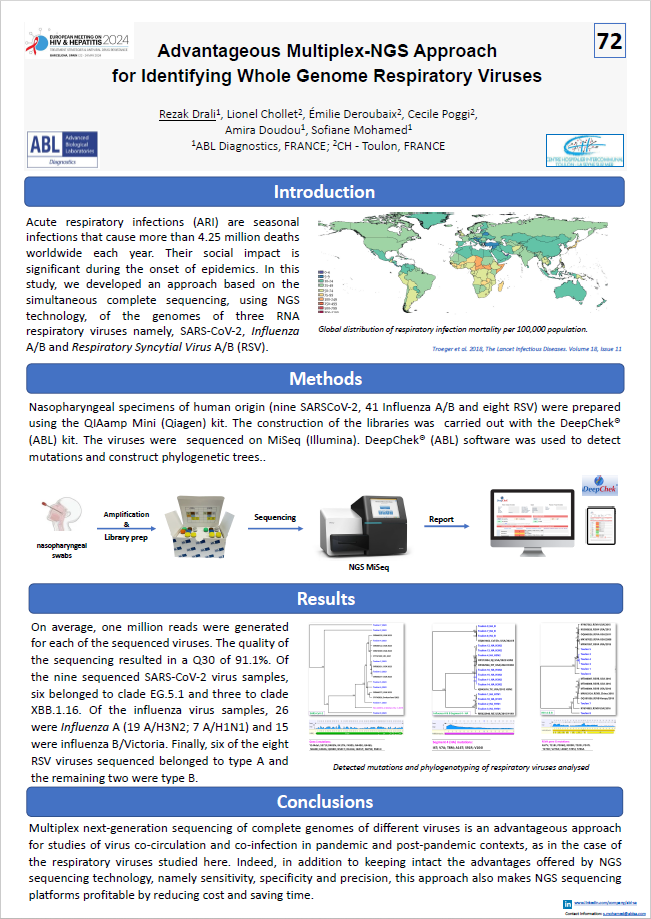
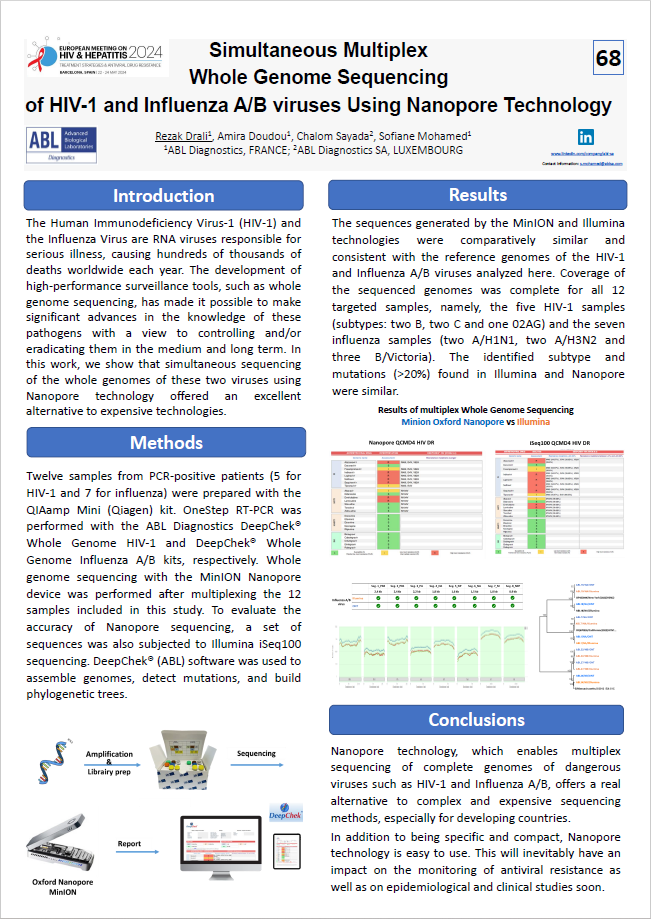
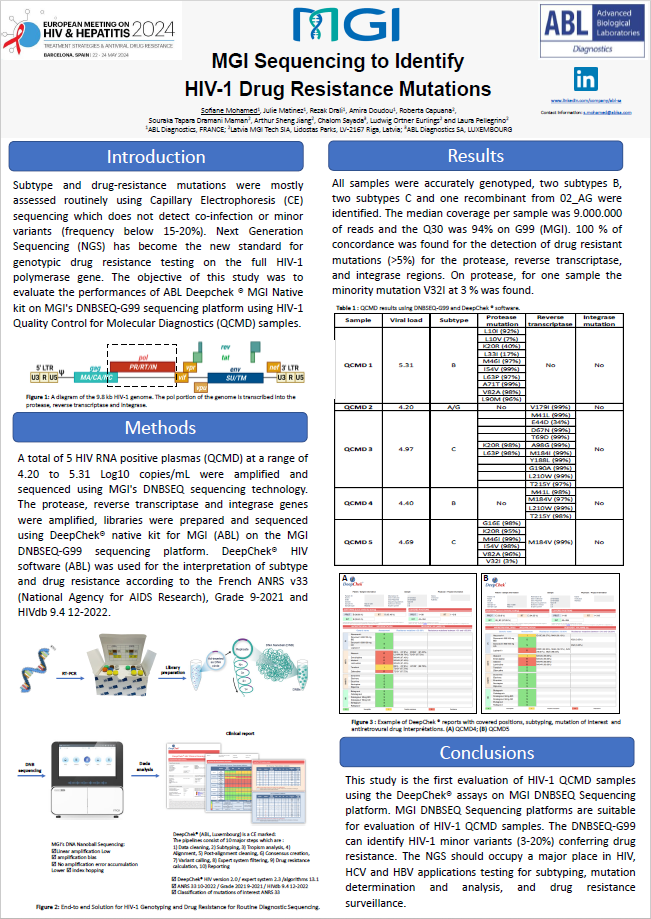
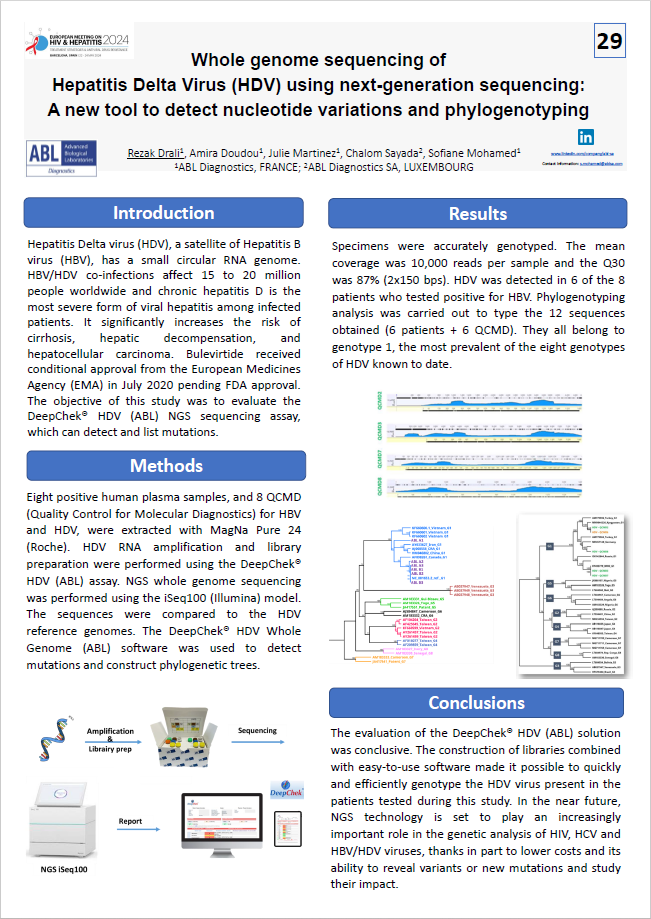
“Next Generation Sequencing (NGS) is becoming the standard technology for performing microbiology genotyping. Our research & development team strives to keep developing new DeepChek® applications for key infectious diseases like hepatitis Delta, influenza A, influenza B, respiratory syncytial virus (RSV) which strengthen the worldwide leading position of ABL Diagnostics. We offer the largest portfolio of assays and downstream analysis software for virology and bacteriology genotyping by sequencing, including but not restricted HIV whole genome, viral hepatitis B & C, cytomegalovirus, herpes, SARS-CoV-2, tuberculosis, 16s RNA and 18s RNA.” said Dr. Sofiane Mohamed, Head of R&D at ABL Diagnostics. “The communications made during this conference bring further confidence to our partners and users. On one hand, the verification studies conducted of the entire technology on as many NGS systems – Illumina (iSeq-100, MiSeq, MiniSeq, NextSeq), Ion Torrent (S5, PGM), MGI (G99, G400, E25) and NanoPore (MinIon, GridIon) show good and reliable performances. On the other hand, on the downstream segment, to ease NGS with lower throughputs laboratories, we are concentrating efforts on offering a multiplexing capacity allowing to pool different types of samples in a single NGS run. It confers lots of efficiency in terms of turnaround time and costs management”, added Dr Mohamed. Global Next Generation Sequencing (NGS) Market is predicted to be valued at around US$ 34.19 Billion by 2030 from US$ 10.63 Billion in 2023 and is anticipated to experience a CAGR of 18.16% from 2024 to 2030. Diagnostic applications are pivotal in the global Next-Generation Sequencing (NGS) market (March 07, 2024 09:42 ET| Source: Research and Markets).
